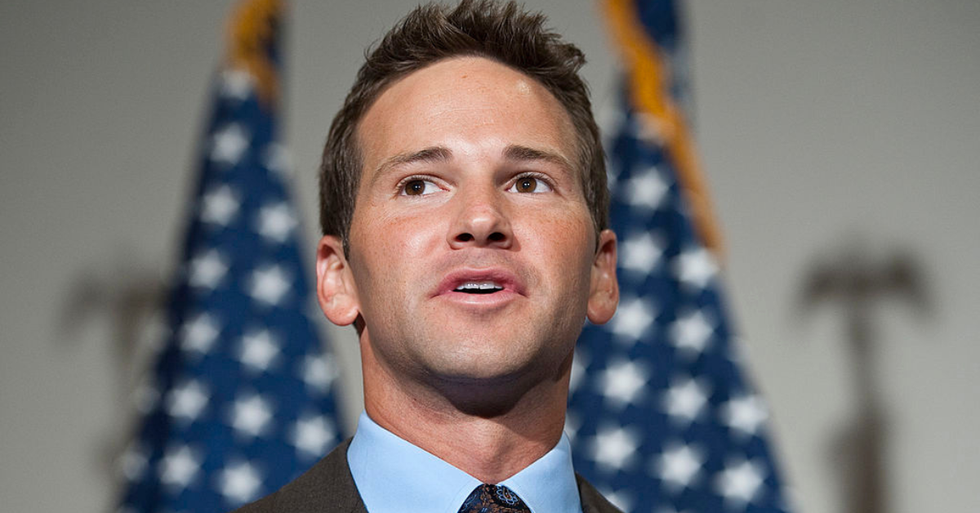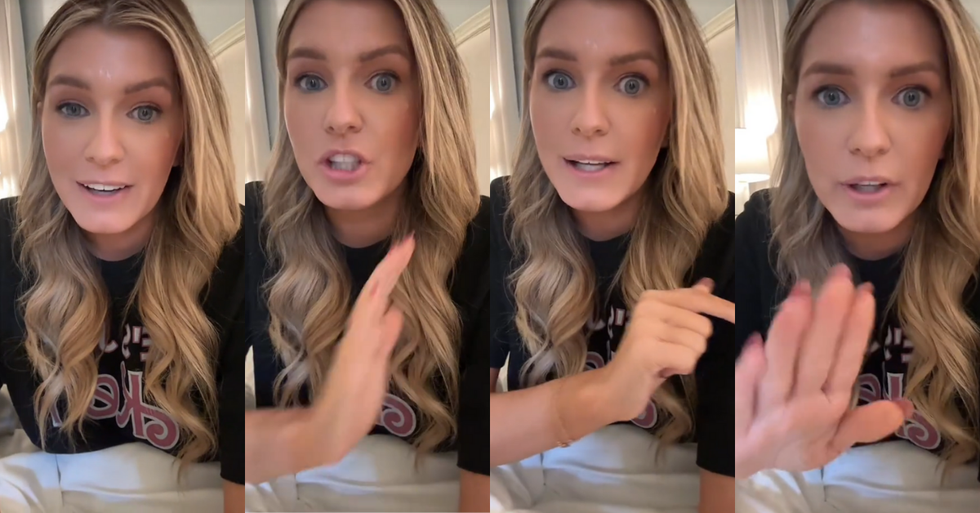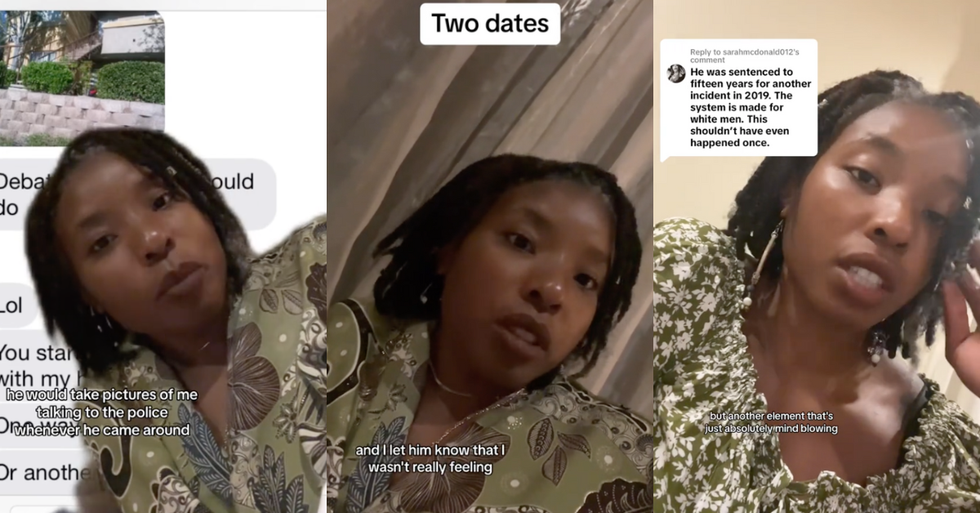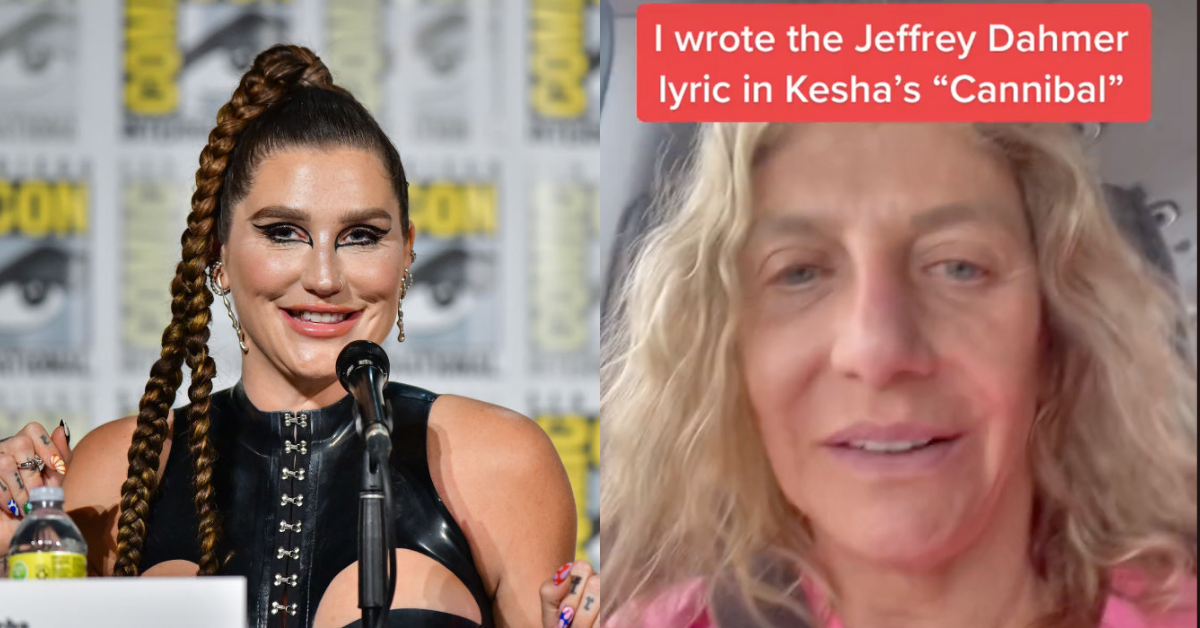The new Netflix series Dahmer—Monster: The Jeffrey Dahmer Story has caused quite the stir.
While Evan Peters’ performance in the title role has received widespread critical acclaim, the rest of the Ryan Murphy series has come under significant criticism for the way the cannibalistic serial killer and his horrific crimes were portrayed.
Several family members of Dahmer's victims even came forward expressing how the series has forced them to relive the trauma they experienced at the time.
The sad words of the family victims have also resulted in past references to Jeffrey Dahmer regaining attention.
Including recording artist Kesha, who alluded to Dahmer in her 2010 song "Cannibal", which contains the following lyric:
"Be too sweet and you’ll be a goner."
"Yeah, I’ll pull a Jeffrey Dahmer."
However, Kesha's mother, Pebe Sebert, has stepped up to urge all those criticizing her daughter for the lyric that if anyone should be taking the blame for it, it is herself.
Sebert explained in a video posted to her TikTok page that it was she, and not her chart topping daughter who wrote that particular lyric.
@pebesebert Visit TikTok to discover videos!
Sebert addressed the vitriol towards the 12-year-old song in the video's caption:
"Some context on the lyric that’s bothering people 12 years later."
"All opinions are valid."
"Not meant to shut anyone down, just more info."
With "I wrote the Jeffrey Dahmer lyric in Kesha's 'Cannibal' firmly on display in an overlay, Sebert further addressed the controversy surrounding the lyric in her car on the way to a spay and neuter event in Panama.
Sebert made it abundantly clear that she wrote the now questionable lyric, and that the only reason Dahmer's name ended up in those lyrics was owing to a rhyming program.
"At the time, Kesha and the other writer were too young to know who Jeffrey Dahmer was."
"Literally, the way it happened is, I had this rhyming program called MasterWriter for songwriters, we were looking for a rhyme for ‘goner'."
Sebert apologized to all family members of Dahmer's victims, saying it was never meant to offend them, and that the song was about Kesha, and no one else.
Sebert explained the meaning of the song was particularly aimed at people who were mean to Kesha in high school, where Sebert claimed she wasn't very popular and wasn't even invited to the prom, but wasted no time in trying to get close to her after she became famous.
Namely the lyric: "But now that I’m famous / You’re up my anus."
“It was a tongue-in-cheek, funny song.
“It was not actually about cannibalism, it was just a title."
"I’m sorry to anybody who’s lost a family member in this tragedy.”
"We certainly never meant to hurt anybody, or make anybody feel bad."
Sebert then acknowledged the Netflix series, and how it's popularity and contorversy might have shone a new light on the song, which was released over a decade ago, while also addressing how people's views of Jefferey Dahmer had changed considerably in the near decade.
"Jeffrey Dahmer was just part of the culture back then, and everybody talked about him for many years."
"What he had done was so extreme, and so worse than anything had ever done, than anybody knew about."
TikTokers seemed to accept Sebert's apology, with many of them noting how this controversy was likely all stemming from the series, and others pointing out how Jeffrey Dahmer is part of history and can thus be part of a song lyric.










Kesha isn't the only singer to come under fire for referencing Dahmer in an old song.
Katy Perry and Juicy J are also under fire for their 2013 collaboration "Dark Horse", which contains the lyric "“She’s a beast / I call her Karma / She’ll eat your heart out like Jeffrey Dahmer.”
Neither of the artists have yet to publicly comment on the matter.
 COMICSANDS
COMICSANDS percolately
percolately georgetakei
georgetakei secondnexus
secondnexus george's picks
george's picks












